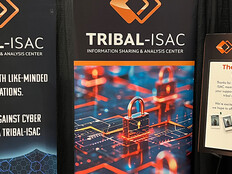Questions Your Federal Agency Should Ask About Next-Gen Firewalls
Network security is one thing federal technology leaders should lose sleep over.
With security breaches a constant threat, agencies must ensure they have reliable and robust security appliances installed and active within their enterprise. One of the best tools deployed in both the public and private sectors is the next-generation firewall.
Next-gen firewalls feature more layers of the Open Systems Interconnection model to improve network traffic filtering, providing added security over previous firewall iterations. Prior to any purchase, agencies should heed the following suggestions:
Basic Filtering: The firewall should perform basic filtering of protocols, IP addresses and ports. It should also allow the user to create rules to direct traffic from one infrastructure or server to another based on predefined rules.
Deep Inspection: The firewall should also perform a deep inspection of the packets being transmitted as well as a stateful packet inspection. It should decipher valid from malicious traffic and respond appropriately.
Centralized Management: CIO and agency security staff need a single view of network traffic to understand issues and respond to threats. There should be a dashboard where management can view high-level reports while security teams interact with policies and data flow to mitigate issues. Also helpful: a display where teams can automate tasks.
Integrated Hardware and Software: The firewall solution should combine hardware and software. Cloud-based or software-based security solutions are typically less expensive and more flexible than hardware However, dedicated hardware appliances that perform simple, yet critical security tasks can be powerful.
Flexible Security Policies: Flexibility is a critical feature in any firewall solution. Security teams must be able to craft, administer and provision security policies based on an employee or the environment, including everything from creation and deployment to management.
VPN Support: Since most federal agencies feature multiple offices and employees in the field, the solution should support VPNs. Offering an encrypted connection to your infrastructure is the key to a safer workplace.
High Availability: As agencies shop for firewall solutions, they should ask: If an appliance fails, are we set up for failover? Hot or warm standby options are needed, along with redundancy built into the infrastructure. The system should also fail over automatically. Such precautions may increase the capital expense for implementation, but they are valuable steps to take.
Easy Integration: Agencies should consider how well firewalls integrate into the existing environment. Is it plug-and-play or will some heavier lifting be required for full integration? Make sure these points are clear with the vendor before signing an agreement.
Automatic Attack Detection: Hardware and software don’t need sleep as their human counterparts do. When a company is under cyberattack, a next-gen firewall should have automatic detection capabilities and act autonomously based on predefined rules, well before summoning human help.









